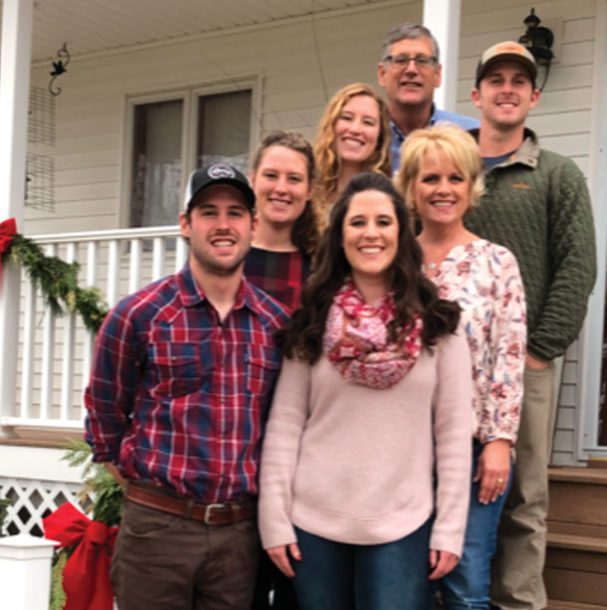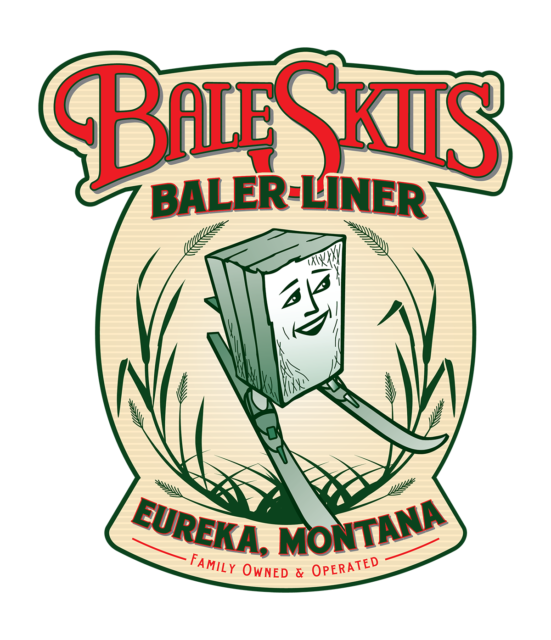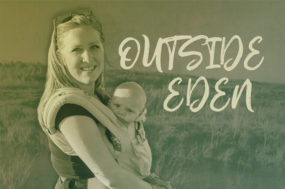Mike and Stacey Lauwers, with their children, operate Lauwers Alfalfa & Straw Farms in the southern “thumb” of Michigan. Together, they farm 1,200 acres, of which 800 acres are in alfalfa any given year.
Originally, the family farm started as a dairy farm and, like many small dairies at the time, the family sold the cows with the dairy buyout in the late 1980s. Mike, his father, Richard, and brother Mark transitioned into cash crops. Twenty years ago, when Richard retired and Mark’s son came back to the farm, the brothers decided to split the partnership.
As Mike says it, “Most people look on a farm partnership splitting up as a really bad thing, as something that hurts the family. That definitely wasn’t the case with our family. Splitting our partnership let us focus on our interests and made room for our children in the operation. Today, my brother and I help each other. He helps farm my rotation crops, and I put up hay for his cows – and Dad, well, he is retired, technically, but at 85, he works every day with whoever needs him.”
Mike and Stacey’s son, Cameron, joined the operation seven years ago after initially working on wind turbines out West and finding that lifestyle did not fit his goals. At Michigan State University, Cameron found an interest in livestock, particularly sheep. Today, they run about 1,000 sheep alongside the farming operation. The sheep business has added diversity and depth to the Lauwers’ operation. As Mike says, “The sheep work out really well. The lowest-quality baleage is nearly too good for a dry ewe, and good dairy baleage is just right for a lactating ewe.”
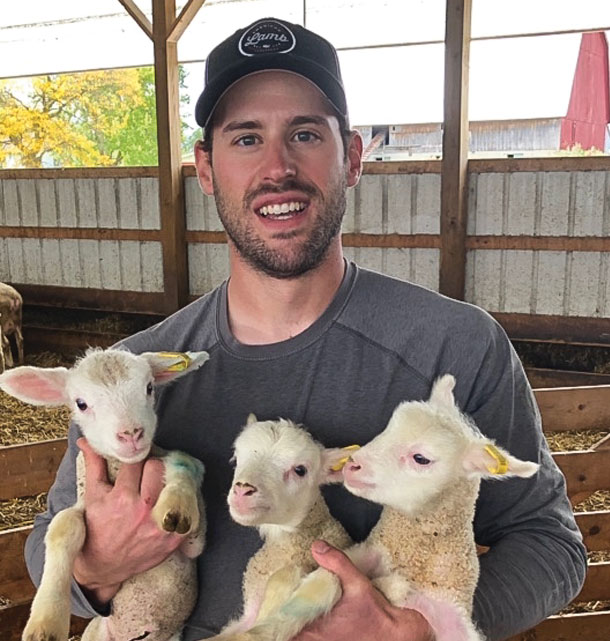
While Cameron has a love for the livestock, Mike certainly loves the hay side of the operation. When asked what his favorite part of farming is, he quickly answers, “I love growing a perennial crop like alfalfa. It’s good for my ground, it’s good for the soil, and it’s good for the environment. Its resiliency continually amazes me. You can give the plant so much abuse and it keeps coming back. It grows pretty much everywhere. There is so much potential with alfalfa.”
Early on, Mike knew that if he wanted to grow hay, he needed to find options in alfalfa. He says, “Our climate just isn’t conducive to growing dry hay consistently. Baleage is an option that works for us, and it provides our customers with a superior product.” Today, he puts up most of his hay using a baleage system. You can find his baleage on dairy farms in Michigan, Ohio, Indiana and Illinois.
He says he looks to produce a little drier baleage than some, aiming for 22% to 30% moisture. He says, “I do this for a couple different reasons; first of all, nobody wants to truck a bunch of water but, more importantly, dairies are looking for a high-quality drier feed product they can mix in with their wet silage ration. Our baleage meets that need.”
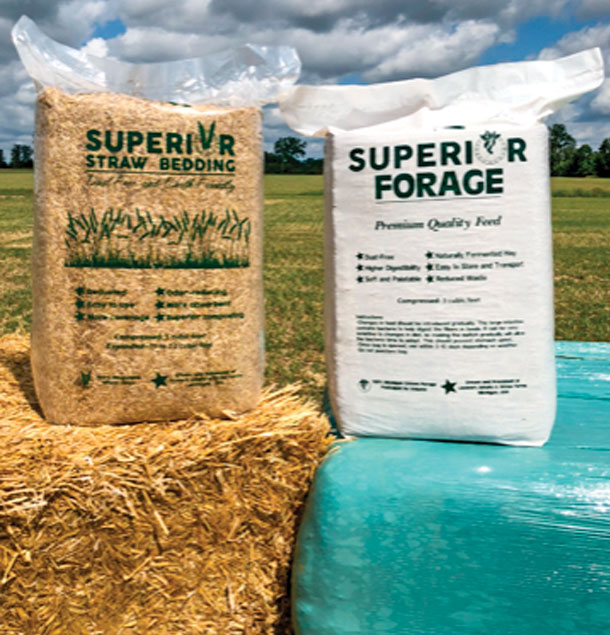
The Lauwers take that quality need of their customers seriously. Every field is inoculated, tested and guaranteed for the specified quality. In any given year, 90% of their hay crop has a feed quality of 140 relative forage quality (RFQ). Mike says, “In my opinion, there is no better feedstuff than well-made baleage. I hate seeing leaves break off when I bale dry hay; with baleage, I can save every single leaf. Baleage use to have a reputation as a bad feed but, with the equipment and processes used today, I’d put it up against any feed.”
Mike is not just passionate about producing quality alfalfa on his farm; he works on behalf of the entire industry. He represents Michigan on the National Alfalfa and Forage Alliance and has in the past served as president of the Michigan Forage Council. He says one of the alliance’s main goals right now is to get more funding dedicated to alfalfa research.
He says, “We need to work on developing the uses for alfalfa and improving the production. It’s such a good crop for a farm and for the environment, but alfalfa hasn’t kept up with corn yields, and many dairy operations are switching alfalfa acres into corn because it makes financial sense. As a true believer in the value of alfalfa, I hate to see that.”
He says the alliance is making progress since its inception 10 years ago. “We have successfully created a checkoff program, so I hope to see some great research in the coming years.” He expressed hope at the potential alfalfa protein has for human use. “Soybeans are used, why not alfalfa? There are definitely options in alfalfa,” Mike says.
Speaking of options, the Lauwers have found a unique way to diversify their operation through a specialty straw and baleage product. Mike purchases his bale wrap from Spain in bulk and, one year, his supplier introduced him to a machine used in Europe to process baleage into smaller bales for the horse market. Mike was immediately intrigued and saw value not only in processing baleage but in the potential for processing straw. The machine cleans, cuts and packages straw into 28-pound packages, and the product is essentially dust-free. It has been well received in the horse industry.
Mike estimates they have doubled production of the straw each year and soon will have to purchase straw to process. They also use the machine to repackage baleage for operations needing feed that is easier to handle than the large bales. Deer farms are one such niche. Mike says, “If you think cows are fussy when it comes to their feed, you have never tried to feed deer, but they thrive on our baleage.”
When it comes to farming, it’s pretty obvious to see the Lauwers family is in it for the long haul and, no matter how they diversify, they will always be looking for options in alfalfa. ![]()
PHOTO 1: The Lauwers family was able to maintain unity (and even strengthen it) through a split in the operation, which allowed different individuals to work with their various strengths.
PHOTO 2: When the farm was divided, Cameron Lauwers focused on sheep production to add diversity and depth to the farming operation.
PHOTO 3: Another diversification for the Lauwers came with the purchase of a machine that produces wrapped straw and hay in 28-pound packages for niche markets. Photos courtesy of Lauwers Alfalfa & Straw Farms.
The Lauwers can be contacted online for more information (Superior Straw Bedding).
Erica Louder is a freelance writer based in Idaho.
